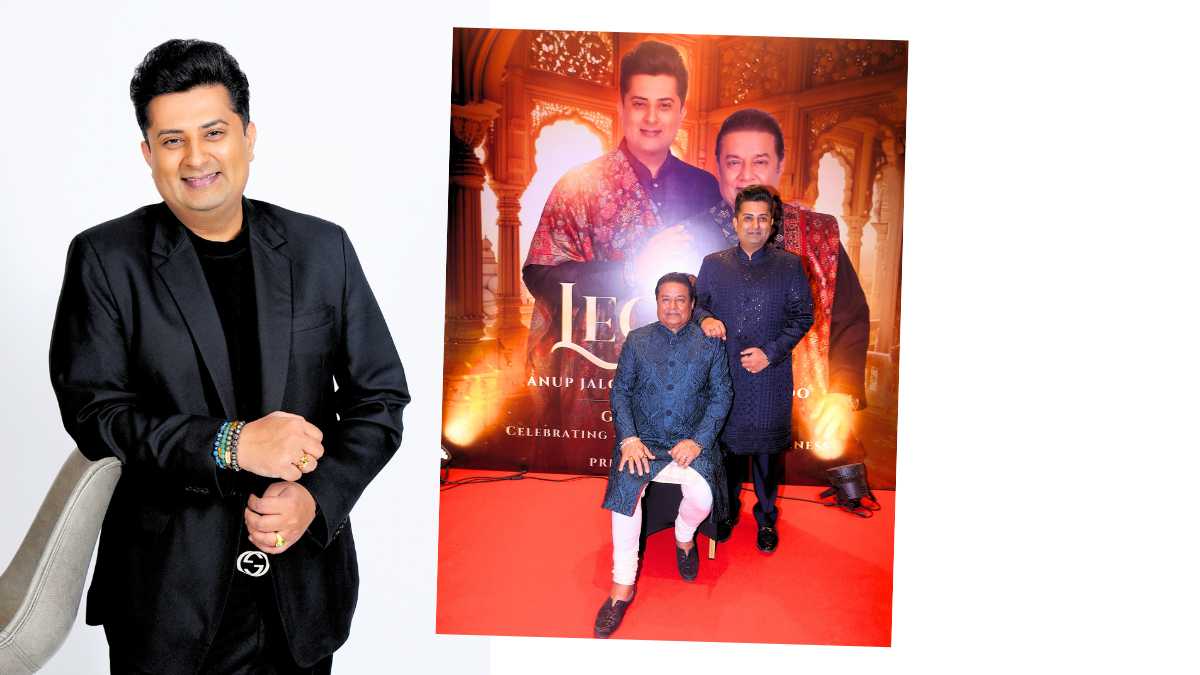
Sumeet Tappoo on fusing tradition with soul in his powerful album ‘Legacy’
In an exclusive conversation, Sumeet Tappoo, the singer with a soulful voice, reflects on his four-decade-long musical journey with Anup Jalota. From deep-rooted traditions to contemporary expressions, he shares the making of their album ‘Legacy’ and the timeless bond they cherish.
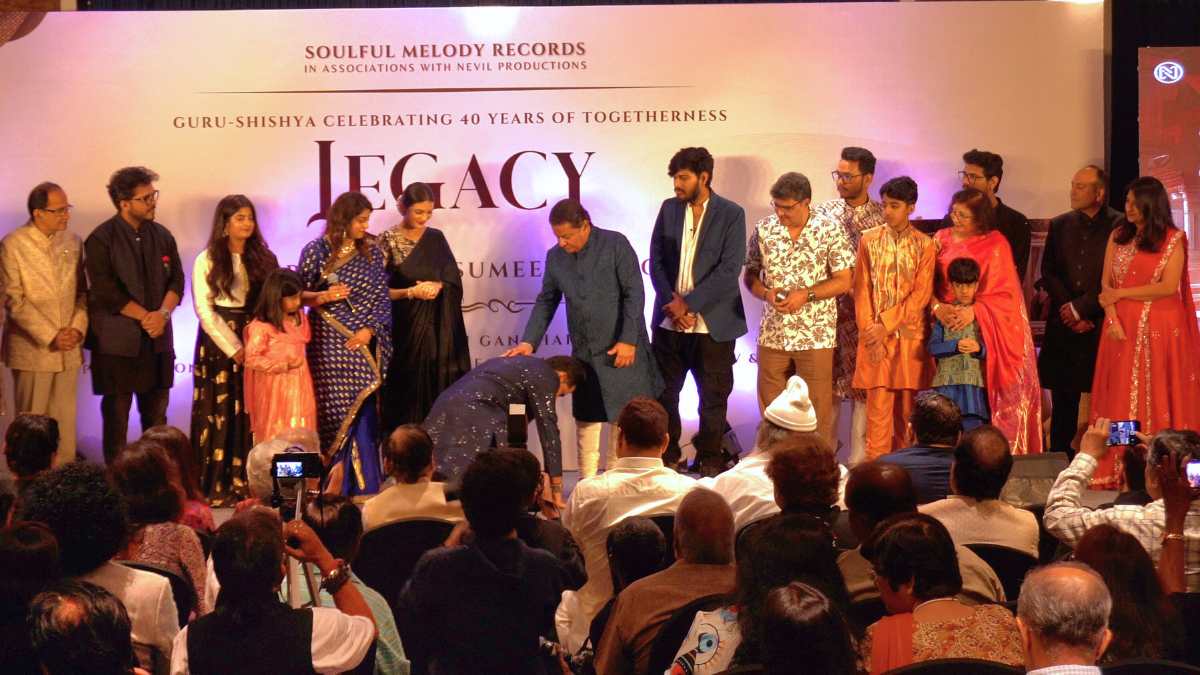
Your musical journey with Anup Jalota spans four decades. How did it all begin?
I was born to Mahendra and Maya Tappoo. My father sings as a hobby and is as good as any professional singer today! My mother is a connoisseur of music. So, I was born into a family that appreciated good music. The songs of Lata Ji, Mukesh Ji, Rafi Sahab and Kishore reverberated at home. Anup Ji’s maiden visit to Fiji was organised by the late Himat Lodhia, a very dear friend — like family, actually. My parents met Anup Ji through Himat Ji, and they took me to all his concerts. Even as a 3-year-old, I was completely captivated. There was something magical about those moments — I was drawn to the melodies, the devotion in his voice. Looking back, those early encounters shaped the direction of my entire life.
What’s extraordinary is that Anup Ji noticed something in me even then. He saw a spark, a connection to music that was perhaps unusual for a child that age. Thus began the journey, which we both know is a continuation from previous births.
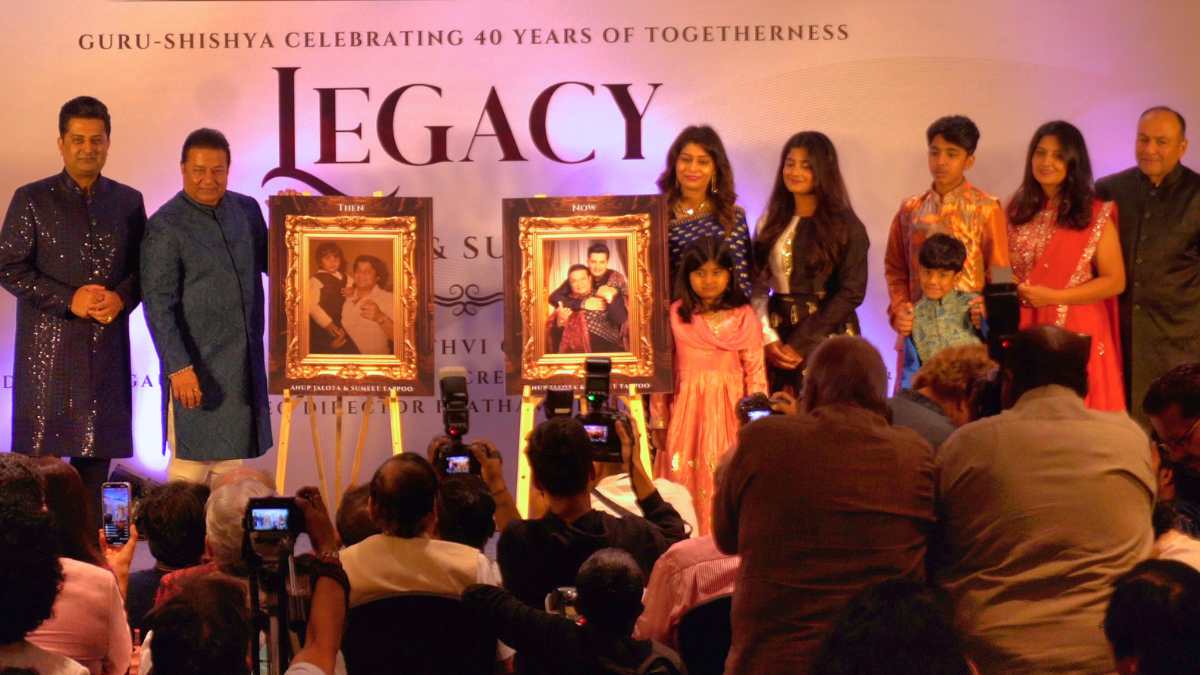
How would you describe the guru-shishya relationship you share with Anup Jalota?
The bond transcends a typical teacher-student relationship. When I say our connection feels eternal, I truly mean it. It’s not confined to this lifetime. Anup Ji has been more than a musical mentor — he’s been a guiding force in my personal development as well.
The guru-shishya tradition is sacred in our culture, and I’ve been blessed to experience it in its purest yet unique form. I haven’t sat with him to learn classical raagas or techniques, but it’s been beyond that. It has been a relationship based on mentoring through the sharing of wisdom, values, and a deep understanding of music’s spiritual essence.
At the launch of the album, we unveiled our photo from 40 years back — me as a child in his arms — which captures the beginning of this extraordinary bond.
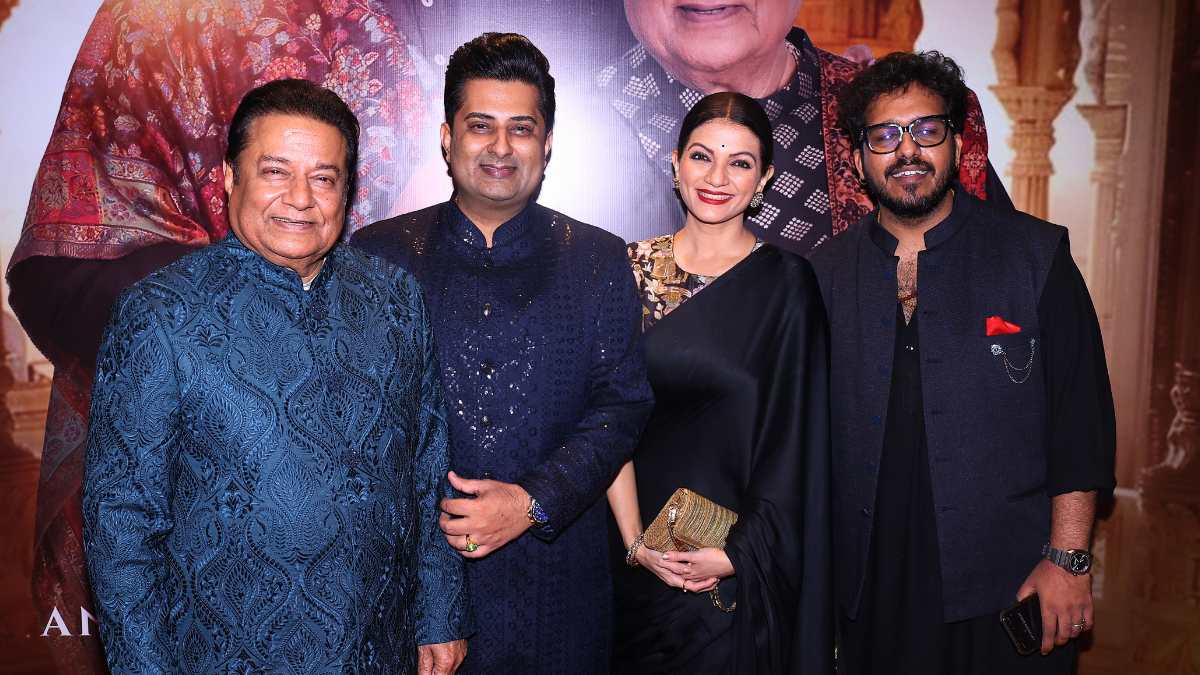
The music album ‘Legacy’ represents your musical partnership. What was your vision when creating this album?
We wanted ‘Legacy’ to be more than just a collection of songs. It needed to tell the story of our journey together while showcasing the versatility of our musical influences. Each track represents a different facet of our artistic expression.
From classical pieces like Chaturang, which honours the Shyam Chaurasi Gharana tradition, to contemporary works like Shaayad and Safar, the Sufi track Meherbaniyan, and the pure Ghazal Raabta, we aimed to create a rich tapestry that would resonate with listeners across generations. Prabhuji and Hari are the two spiritual tracks that complete the album.
The compositions by Prithvi Gandharv are truly remarkable, and looking back, I made the right choice in choosing him as the composer. He was able to understand both Anup Ji and me, and our aim — that the album be both a tribute to our past and a bridge to the future.
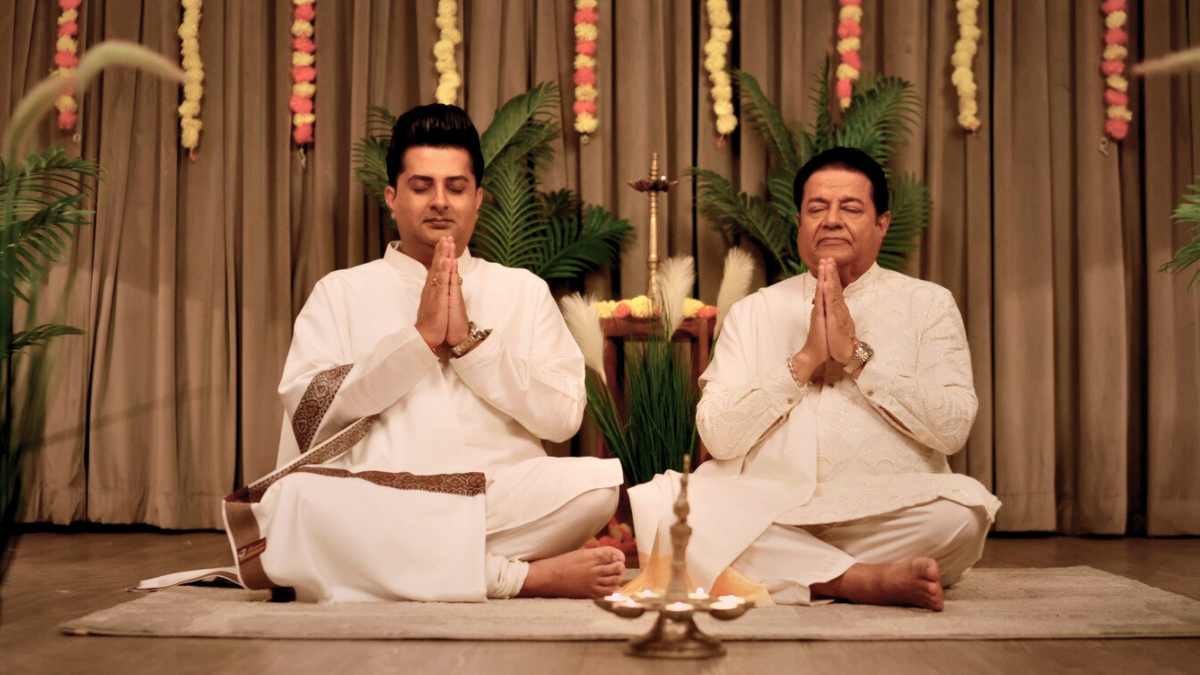
The final track “Hari” seems particularly meaningful to you. Could you share more about it?
Yes, Hari holds a special place in my heart. It was inspired by Michael Jackson’s Heal the World and based on Meera Bai’s 16th-century devotional prayer. I conceptualised this offering because I felt compelled to address the suffering we still see in our world. Despite advancements in many regions, billions remain forgotten — trapped in poverty, conflict, and without access to basic necessities.
The track is our prayer for world peace, for unity across faiths and nations. As artists, Anup Ji and I believe music has the power to inspire change. Our Sanatan Dharma teaches us Vasudhaiva Kutumbakam — the entire world is one family. Through Hari, we hope to remind listeners of our collective responsibility toward each other, regardless of borders or backgrounds.
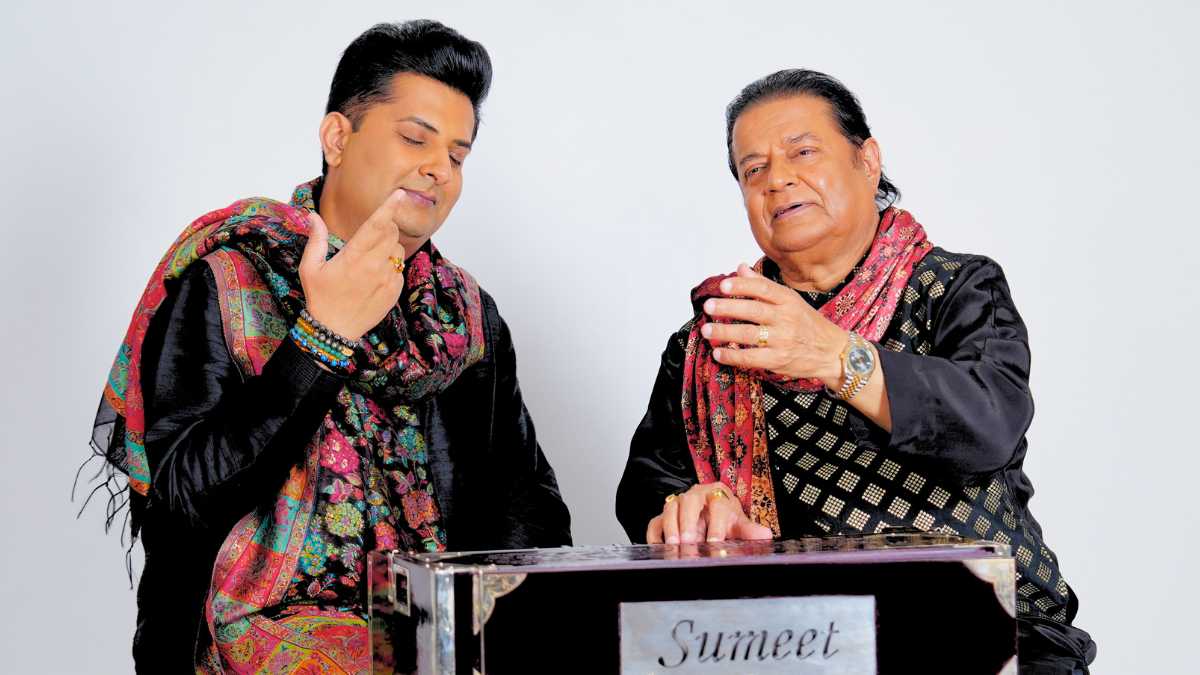
How have you balanced preserving traditional elements while embracing contemporary sounds in your music?
Ah, I love your questions! This balance has been central to my artistic development. I believe that to keep traditional music relevant, we must allow it to evolve without losing its essence.
In this album, having Prithvi Gandharv as the Music Director was a key factor in achieving this. Take Prabhuji Tum Chandan Hum Paani, for instance — we enhanced a devotional composition with a live symphony orchestra, creating something both timeless and fresh.
I’ve found that audiences, particularly younger generations, connect deeply with traditional elements when they’re presented in accessible ways. It’s not about diluting the classical foundation, but about building bridges that invite new listeners to discover its beauty. Anup Ji has been remarkably supportive of this approach, encouraging innovation while ensuring we honour the traditions.
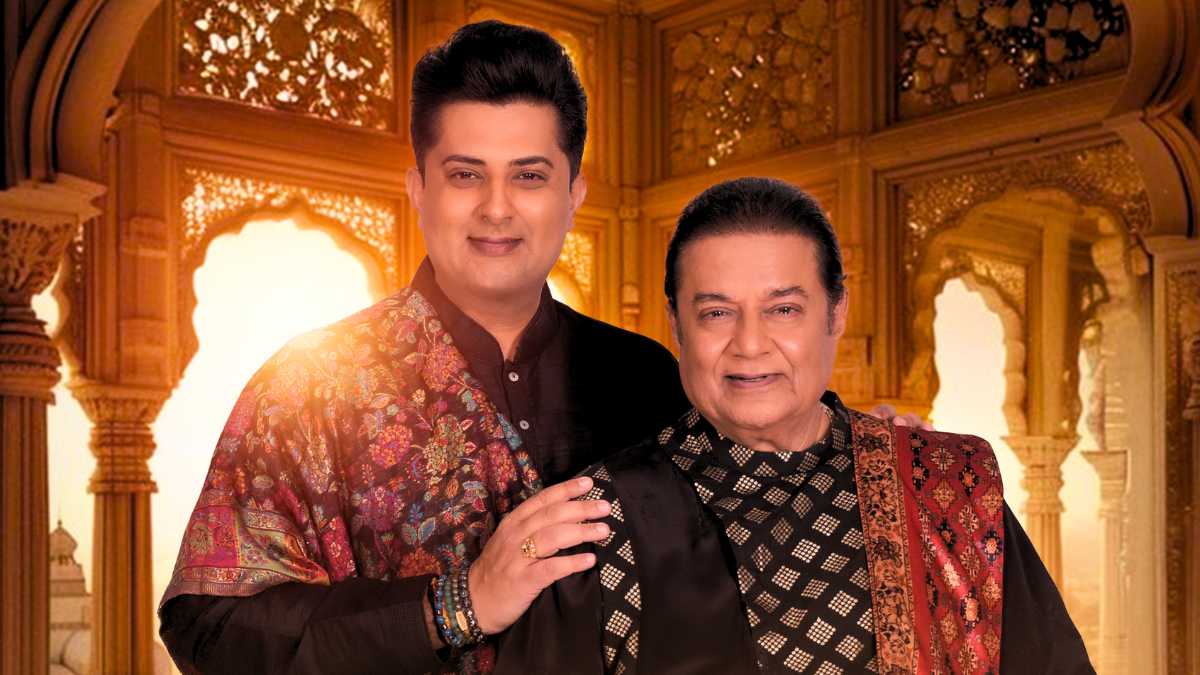
What was the most challenging aspect of creating ‘Legacy’?
The greatest challenge was doing justice to the four decades of musical heritage we share. How do you distil such a profound relationship into seven tracks? We wanted each piece to stand on its own while contributing to the album’s overall narrative. Selecting which genres and compositions to include required considerable thought.
Another challenge was technical — ensuring that classical pieces like Chaturang maintained their authenticity while still appealing to contemporary listeners. Balancing production values with traditional sensibilities took time and care. But these challenges ultimately made the project more meaningful, pushing us to create something truly representative of our musical journey.
The final challenge was to be satisfied with the final product. As artists, we are never satisfied, and personally, I’m a perfectionist. I try to achieve the very best I can. I always say, “I need to put in my 108%!” But the end product is something that both Anup Ji and I are happy with, because we have given it our best.
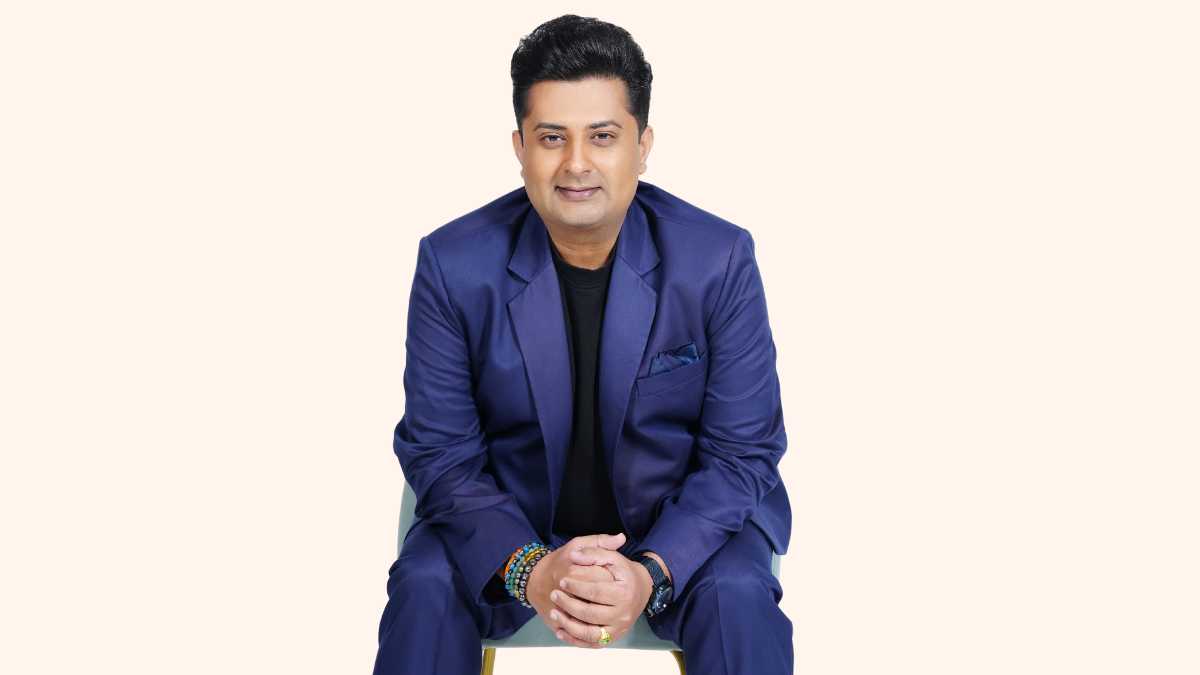
What advice would you give young artists looking to find their voice while learning under a mentor?
The problem with today’s generation is that they want to get name, fame and money before they even step on the field. Music is something very sacred. It cannot be taken lightly. It needs reverence, humility, dedication and sacrifice. To begin with, one needs to internalise one very important fact — that you remain a student till you die.
When it comes to learning under a mentor, teacher or Guru, approach the relationship with genuine humility and reverence. True learning begins when you empty your cup. Listen deeply — not just to technical instruction but to the philosophy behind the music. With Anup Ji, some of my most valuable lessons came from observing how he approached a composition, how he sang the song, how he conducted himself in front of others, and most importantly, how he treated others.
And like I said earlier, be patient with your development. Mastery takes time — years, not days. The guru-shishya tradition isn’t about quick results but deep transformation.
Finally, find the balance between honouring tradition and developing your unique voice. Your individuality isn’t something to suppress but to discover gradually through disciplined practice and sincere dedication. The most authentic expression comes when you’ve thoroughly absorbed tradition and then allowed your personality to shine through it.

How does it feel to see ‘Legacy’ receiving such overwhelming response?
I can’t even begin to describe the joy in my heart. I’m just so humbled. When you pour your heart into a creative project, you hope it will resonate, but you can never predict the response. Seeing how deeply listeners have connected with our music reaffirms my belief in the universal language of music. The album’s success belongs to our listeners as much as to us.
What moves me most are the personal stories people share — how certain tracks have touched them emotionally or spiritually. That connection is the true measure of success for me. And of course, seeing Anup Ji’s pride in what we’ve accomplished together brings me immense joy. Legacy is aptly named because it represents not just our past but what we hope to contribute to the musical tradition going forward.

What’s next for you after the success of ‘Legacy’?
I’m always hungry for more. I never rest on my laurels. The day I heard the final master of the album, before its release, I moved on to work on the next projects, learn more, and explore newer creative pathways. I’ve always believed that music should serve a higher purpose. I use music as a platform for change. I’ve intertwined and merged music, spirituality and philanthropy all into one.
Music has the power to heal, to bring people together across divides. That’s the direction I feel called to pursue — creating art that entertains while also uplifting and uniting people, and ensuring that we all come together to serve the underprivileged and needy.
Of course, continuing to learn from and collaborate with Anup Ji remains important to my journey. Our guru-shishya relationship continues to evolve, and I look forward to where this musical path leads us next.
But you will definitely hear many more facets of my musical repertoire in the times to come.
